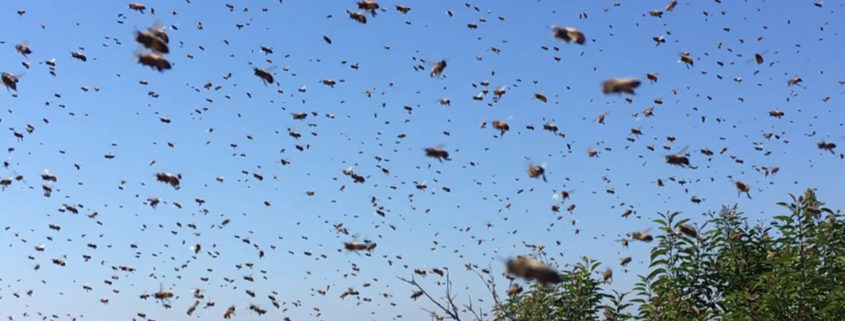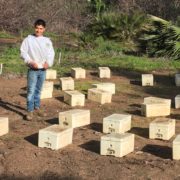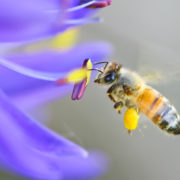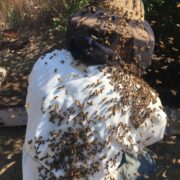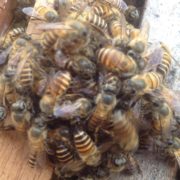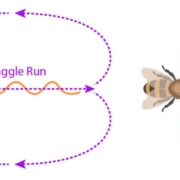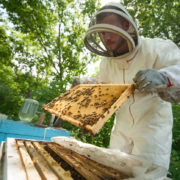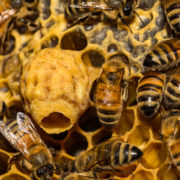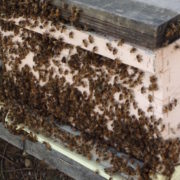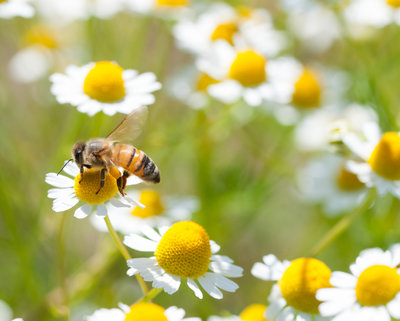Absconding Bees
The fall season of beekeeping is arguably the worst time of year to be a beekeeper. All of the typical adversities of beekeeping are intensified in the fall: Lack of forage, drought, heat and fire risk (especially in the western states), varroa mites, food shortages, yellow jackets, etc. With all of these adverse conditions, sometimes it seems like it’s a miracle that the bees can survive at all at this time of the year. At Wildflower Meadows, we typically experience our largest colony losses in the autumn months of September and October. It is not surprising, as the bees have so much conspiring against them in the fall.
Because of this, once our queen production comes to an end in September, our beekeepers rapidly switch gears and aggressively focus on helping our bees survive these meager months – especially the more vulnerable smaller colonies and mating nucs that were just part of our recent queen production.
We feed our bees aggressively, and protect them to the best of our ability against these harsh elements. We feed pollen patties and other nutritional supplements; we expand the fire breaks around each apiary; we put out ant baits and yellow jacket baits to keep these aggressive pests (somewhat) under control; we make sure that every yard has continued access to reliable fresh water; and we sometimes place additional lids on top of our colonies for additional shade and heat protection.
In spite of all of these efforts, sometimes it is simply not enough. When a colony of bees becomes overly stressed for any or all of the above reasons, it may get to the point where the bees themselves decide “enough is enough.” They’ve had it, and they want out. And so, they leave . . .
Sometimes in the fall we find that there is an uptick in “swarming.” Our beekeepers find what appear to be giant swarms of bees hanging around the edge of our apiaries. Other giant swarms seem to arrive out of nowhere. These swarms are unusual, as that unlike spring swarms, they often seem reluctant to want to settle into hive bodies. Of course, these fall swarms are not like the standard spring swarms; they are actually entire colonies of bees that are on the run. And, of course they don’t want to go back into boxes. They just escaped one, and the conditions were terrible!
In the beekeeping world, this is called absconding. Absconding almost always takes place in the fall. Sadly, these absconding bees have almost no chance of surviving the winter. Like desperate refugees leaving a war zone with few options, they have scarce resources and limited realistic possibilities for survival. The best they can hope for is that a conscientious beekeeper can rescue them, give them a new and safe home, feed and treat them well, and offer them a fighting chance to survive into the next season.

